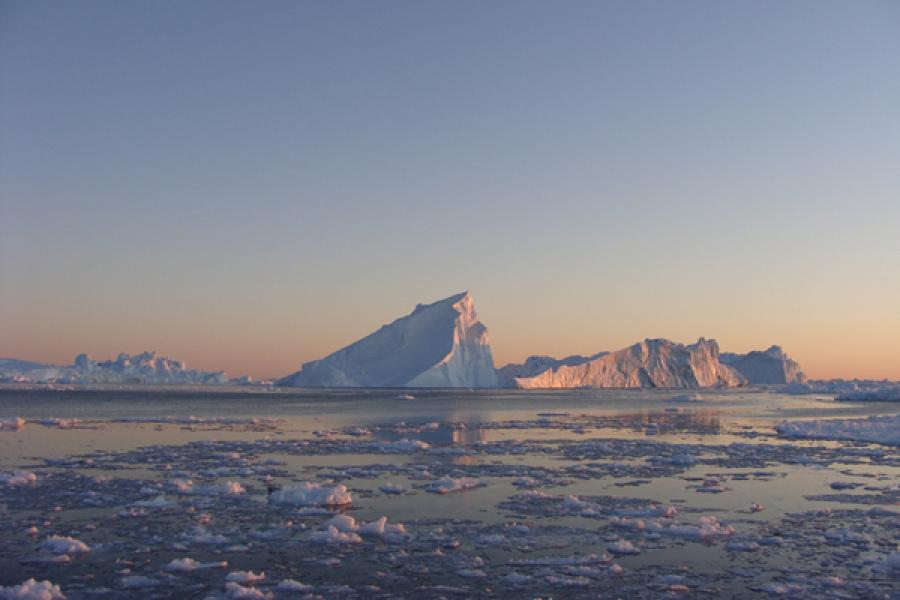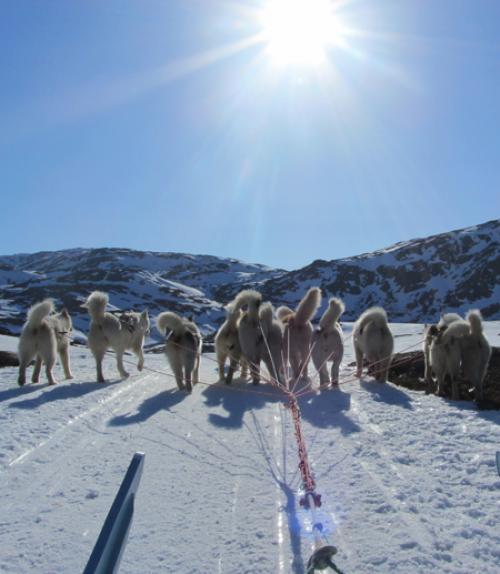Dawn Berry is a visiting scholar in the Department of History at Cornell, and former postdoctoral fellow in foreign policy, security studies, and diplomatic history at the Mario Einaudi Center for International Studies.
How did you become interested in foreign policy relating to the Arctic and Antarctic, and why are these regions important?
I first began working on Arctic issues over a decade ago during a reading course on the Canadian Navy. I decided to do a paper on the Navy’s role in the Arctic during the Second World War. While researching the subject I came across a VHS tape called “Mission Northwest Passage” about the RCMPV St. Roch, the first vessel to sail from the Pacific to the Atlantic through the Northwest Passage.
In the film, there was a 30-second clip about the American military blocking another Canadian ship, the RMS Nascopie, from obtaining a mineral in Greenland in 1940. The clip left me with a number of questions: what was the U.S. doing blocking Canadians? What did the British think about this? What was this mineral? And why Greenland?
These questions have led me to five counties, over 30 archival collections, and the highest levels of political decision-making, most significantly by the former President of the United States, Franklin Delano Roosevelt. Following the trail of clues amongst these archives, I have been reconstructing Roosevelt’s Polar Strategy and how it came to shape current global security structures.An examination of the history of the polar regions over time reveals them to be most geopolitically significant in moments of global crisis and war. In our current moment of climate change and global instability, we are seeing, and will continue to see, changes in the balance of global power dynamics in the polar regions.
What is the current mechanism for governing the polar regions? Who are the players and how do they assert their rights?
There isn’t a single mechanism that governs the polar regions. The Antarctic is currently governed by the Antarctic Treaty System. The treaty established this region as an international zone of cooperation. It banned military activity and nuclear testing and encouraged the exchange of scientific knowledge. The treaty originally had 12 signatories, most with historical territorial claims, and it now has 53 signatories. Although the treaty does not expire there are numerous challenges to the current system of governance, including but not limited to bioprospecting, climate change, and increased tourist and NGO activities. There is also lobbying to alter current bans on mineral exploitation and oil drilling in the region, covered by the Madrid Protocol, which comes up for review in 2048.
As for the Arctic, it is subject to a complex system of local, regional, national, and international systems of governance.
How are the challenges of governance developing now that climate change is transforming the polar regions?
It is often assumed that climate change will have positive impacts on the economic opportunities in the polar regions, particularly in relation to natural resource extraction, tourism, and shipping in the Arctic. These assumptions have increased international attention and interest in the region, but the reality of the situation is much more complex.
Despite the melting ice and retreating glaciers, natural resources in the Arctic remain exceedingly difficult and costly to access, extract, and transport. These challenges are exacerbated by the fact that much of the Arctic’s infrastructure is built on permafrost, and as temperatures rise, roads and buildings become unstable.
Similarly, some have pointed to increased tourism in the Arctic as a source of financial gain for the region; however, increased tourism could have significant negative impacts on the fragile environment. In addition, although climate change is causing sea ice to melt, it is also increasing the number and size of icebergs and contributing to more volatile weather patterns and increased costal erosion – all of which increase the risks associated with shipping in the far north.
Finally, in addition to coastal erosion, climate change is affecting animal migration patterns, altering hunting and fishing practices, and affecting the use of traditional means of transportation, such as dog sleds, skiing, and snowshoeing. Conservation efforts and environmental NGOs focused on Arctic wildlife preservation are increasingly coming into conflict with the rights of indigenous peoples over how best to manage wildlife populations. In extreme cases, these factors are creating climate refugees. These refugees are members of the local populations who are no longer able to sustain traditional ways of life.
All of these factors compound the already complicated picture of local, regional, national, and international governance of the regions.
What is Cornell’s role in the North American Arctic?
Cornell’s role in the Arctic dates back to the 19th century. Ithaca and the Cornell community provided financial, expeditionary and scientific support for polar explorer Robert Peary’s numerous trips to Greenland.
Cornellians were also involved in the technological advances that made polar flight possible, including the development of airplane fuel for Richard Byrd’s Antarctic flights, along with the missile defense systems and military infrastructure that stretched across the North American Arctic during the Cold War.
Cornell’s contribution to Arctic science is reflected in the naming of the Cornell Glacier in Greenland, as well as at various locations on campus. Both Peary and Byrd attended services at Sage Chapel to commemorate the death of a Cornellian on one of Peary’s expeditions.
Today, a multi-disciplinary team of researchers led by Dr. Matthew Pritchard (Earth and Atmospheric Sciences) has digitized historic field photographs from Cornell’s expeditions to Greenland and Alaska. These images are assisting a new generation of scientists researching climate change in the high north.
Chat in the Stacks with Dawn Berry
Tuesday, April 18, 2017 at 4:30 p.m., Olin Library, 107
Berry will discuss her book, Governing the North American Arctic (Palgrave Macmillan, 2016). Buffalo Street Books will offer books for purchase and signing.
The free event is sponsored by Olin Library. Refreshments will be served.
Click here for more information.
This story also appeared on the Einaudi Center website.






